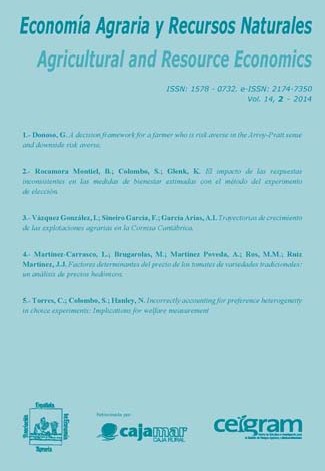Incorrectly accounting for preference heterogeneity in choice experiments: Implications for welfare measurement
DOI:
https://doi.org/10.7201/earn.2014.02.05Palabras clave:
Choice experiments, Monte Carlo analysis, preference heterogeneity, welfare measurement.Resumen
The impact of the approach used to describe preference heterogeneity on welfare measures has been widely studied by the academic community. However, the question as to the degree of error in welfare estimation from an inappropriate choice of empirical approach has not been addressed yet. In this paper, we use Monte Carlo analysis to investigate this issue. Our overall conclusion is that, when analysts have difficulties in choosing the best approach relying on available statistical tests, smaller errors in welfare measures are likely to come from use of a latent class model.
Descargas
Publicado
2014-12-01
Número
Sección
Artículos

